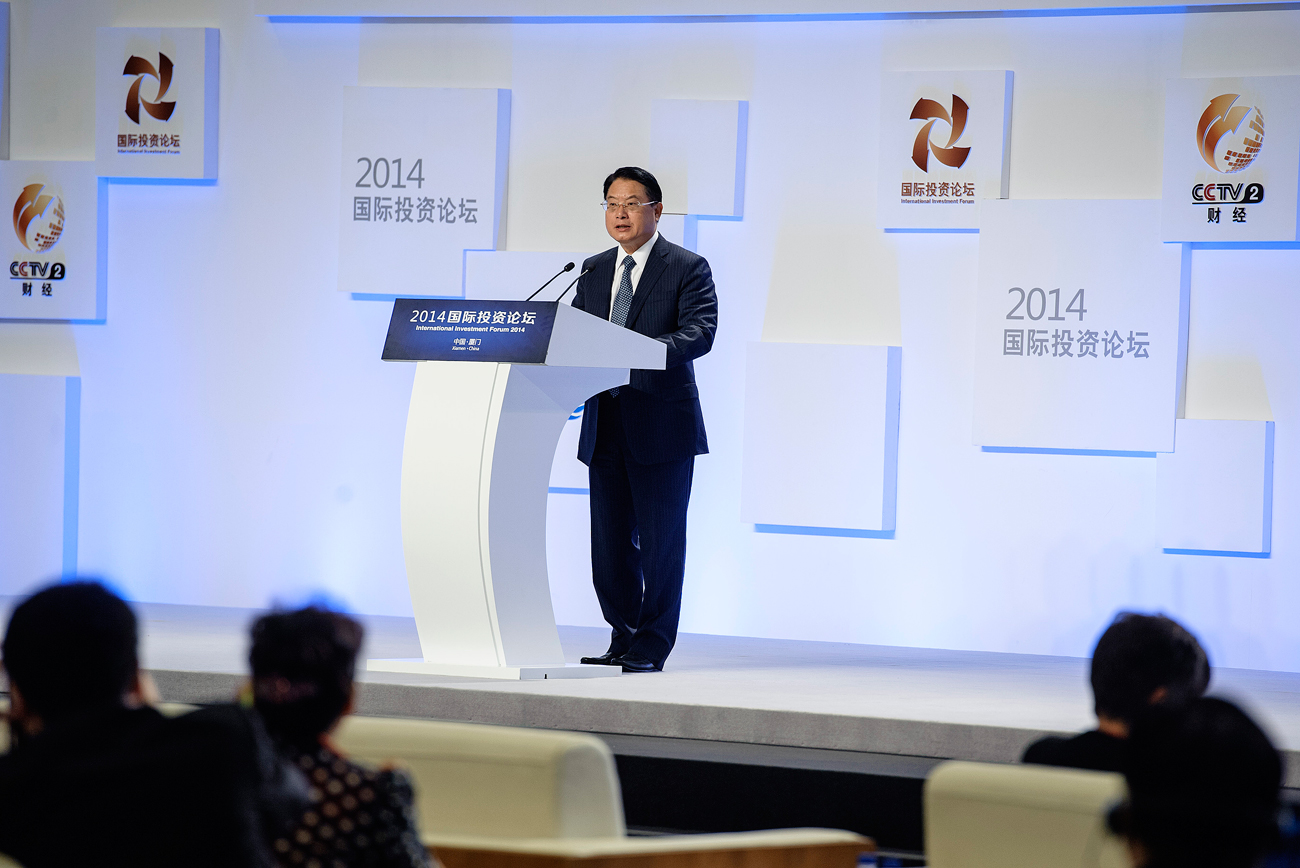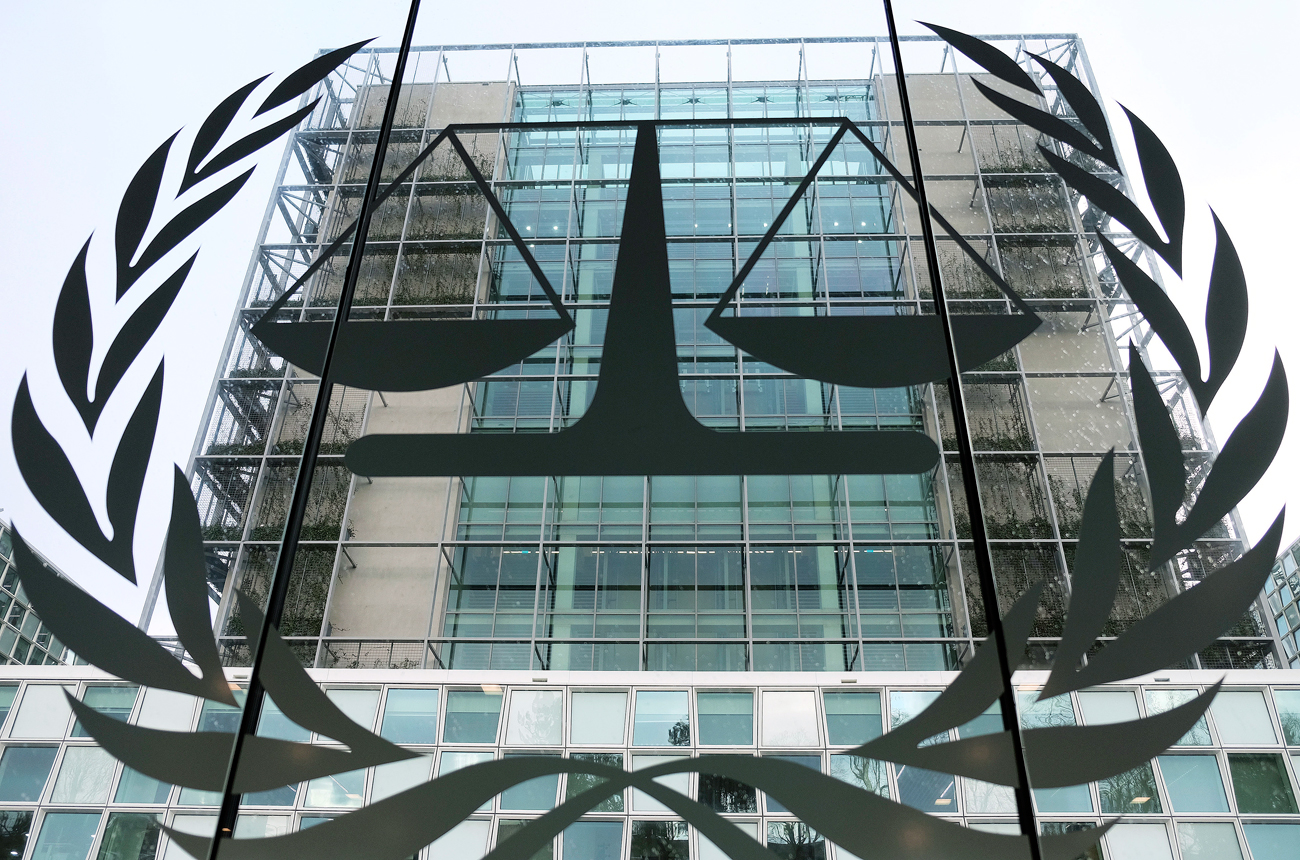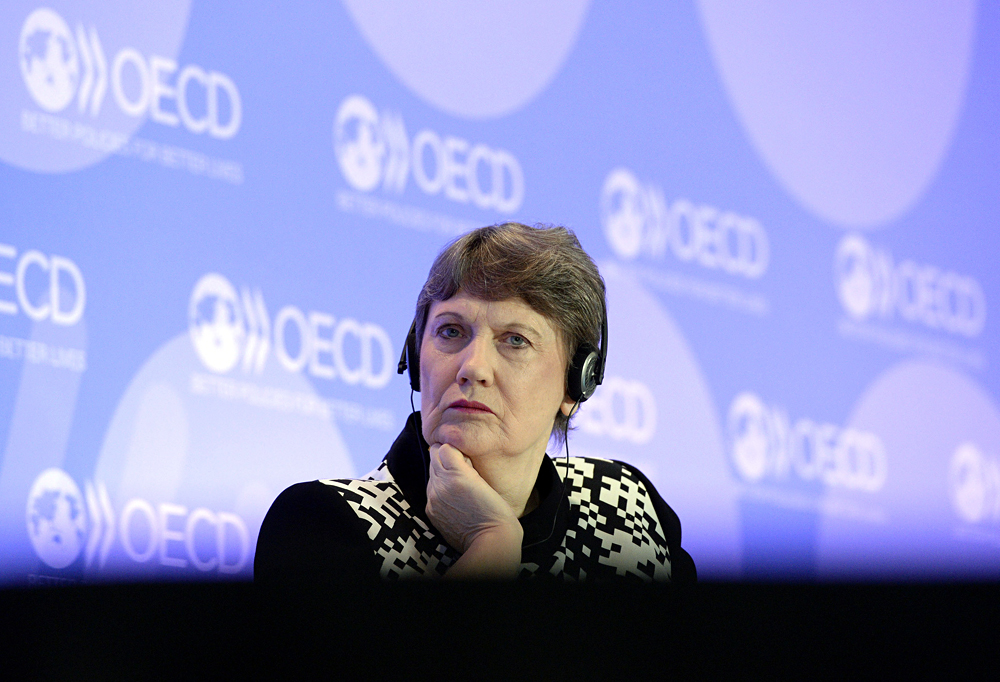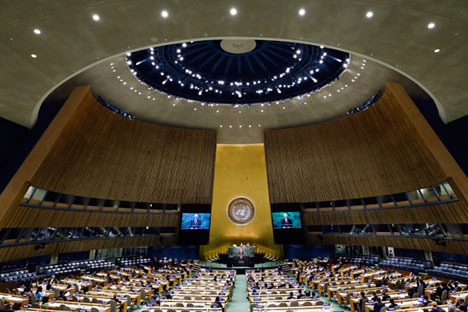UNIDO head Li Yong: Russia playing greater role in industrial development

Li Yong, director-general of the United Nations Industrial Development Organization (UNIDO), delivers a speech at the International Investment Forum 2014 in Xiamen, southeast China's Fujian Province.
AFP / East NewsThe United Nations Industrial Development Organization, or UNIDO, is marking its 50th anniversary with a big range of high-profile events at its headquarters in Vienna’s UN Office. The regular board meeting is supplemented with an exhibition, a high-level ministerial meeting, an academic conference, press events, a meeting of donors, and film screenings and parties.
The anniversary is seen as a de facto relaunch for the agency, which went through a period of stagnation before an attempt to reinvigorate the organization began in 2013 with the election of a new director general, Li Yong, who previously served as China’s deputy finance minister.
Ahead of the celebrations, Li granted an exclusive interview to Russia Beyond The Headlines, in which he spoke about the organization’s history and present-day activities, Russia’s role in it and the future of “Industrialization 4.0.”
RBTH: As UNIDO celebrates its 50th anniversary, what are the organization’s greatest past and current achievements?
Li Young: UNIDO focused its activities on the creation of industrial human capital, including investing in capacity building and institutional infrastructure development as well as the deepening of sectoral emphasis. Those activities were essential, and without them the process of industrialization could not have moved forward. Thanks to the broad coverage of programmes and projects that UNIDO has successfully implemented, beneficiary countries now have the awareness, knowledge and infrastructure to further advance their industrial development objectives.
There are many achievements that the organization can be proud of; from the development of agro-industries in Africa to the implementation of the multilateral environment agreements, from the work on investment and technology promotion to standards and quality assurance, from working towards a circular economy to promoting gender equality and women’s empowerment.
Maybe the greatest current achievement is that UNIDO’s advocacy of inclusive and sustainable industrial development has paid off, as the organization’s member states fully recognize the central importance of industry to advance the international development agenda, as stipulated in the 2013 Lima Declaration and in SDG9 – build resilient infrastructure, promote inclusive and sustainable industrialization and foster innovation.
RBTH: What are the main aspects of UNIDO’s cooperation with Russia?
L.Y.: Starting with the establishment in 1989 of the UNIDO Centre for international industrial cooperation, the cooperation between the organization and Russia sought to promote international economic, technological, industrial and cooperation between Russian entities and potential partners in both developed and developing countries.
Progressively, the cooperation also included technical cooperation projects in energy and environment, including on industrial energy efficiency in GHG [greenhouse gas]-intensive industries to reduce greenhouse gas emissions, to phase out HCFCs [hydrochlorofluorocarbons] through technology transfer, or to dispose of PCBs [polychlorinated biphenyls]. At the same time, Russia started to also provide financial and human resources in support of technical cooperation projects, from fisheries in Sierra Leone to textiles in Armenia.
Today, Russia is one of the major donors for the organization, with a contribution of almost $14 million for the development of technical cooperation projects, mainly in CIS countries. Concurrently, UNIDO projects in Russia seek to safeguard the environment, with a 2015 budget of almost $5 million. Clearly, the importance of Russia as a donor of the organization is increasing, for the benefit of all involved.
RBTH: What is UNIDO’s role in the 2030 development agenda?
L.Y.: Since its creation almost 50 years ago, UNIDO has always stood by developing countries with technical cooperation and policy advisory services to support them in their efforts to eradicate poverty and create wealth. UNIDO’s priorities fully reflect the three inter-related dimensions of sustainable development – economic, social and environmental – and equip the organization well to deliver on the Sustainable Development Goals (SDGs) to eradicate poverty, create jobs, combat environmental degradation and promote sustainable economic growth.
Inclusive and sustainable industrial development (ISID) lies at the core of UNIDO’s mandate; it is one of the main drivers for sustainable development and will be crucial for achieving the 2030 Agenda for Sustainable Development. ISID can serve as a primary engine in reaching SDG 9 on industry, innovation and infrastructure not only by creating jobs and increased economic growth, but also by facilitating technology transfer, investment flows and skills development.
In recent years, UNIDO’s Programme for Country Partnership (PCP) has achieved concrete results and proved to be a successful strategy to attract investments to realize broad and sustainable industrial development. This new type of assistance package is a custom-built formula aligned with the national industrialization priorities and development plans of the beneficiary country. The PCP helps upscale technical cooperation services and leverage additional resources. UNIDO believes that, by combining its traditional implementation of technical cooperation activities and the pursuit of the PCP approach, the organization’s delivery on the 2030 Agenda will be strengthened.
RBTH: Will industry continue to be a driving force of development; how can developing countries benefit from the new industrial revolution?
L.Y.: Industry is and will remain a driving force of development; worldwide, productive activities still account for the great majority of job and wealth creation. At the same time, technological advances such as increased digitalization and the automation of manufacturing – dubbed Industry 4.0 or the new industrial revolution – will have an impact on the future structure of industries.
The concept of circular economy is also gaining momentum. Both approaches will reshape industrial development in industrialized countries. Ultimately, the future of prosperity will be the result of flexible industrial processes that allow for customized products, including through the Industrial Internet of Things, miniaturization and 3D printing.
Developing countries and economies in transitions must prepare to face the many challenges of this major paradigm shift in order to reap the benefits of the new industrial revolution and to achieve the objectives set forth in the SDGs, and particularly in SDG9. UNIDO stands ready to assist countries in this transition phase through various programmes to ensure prosperity for all as we more forward towards achieving the 2030 Agenda.
Read more: Ombudswoman: Russia’s non-election to UN Human Rights Council temporary>>>
Subscribe to get the hand picked best stories every week
All rights reserved by Rossiyskaya Gazeta.
Subscribe
to our newsletter!
Get the week's best stories straight to your inbox


